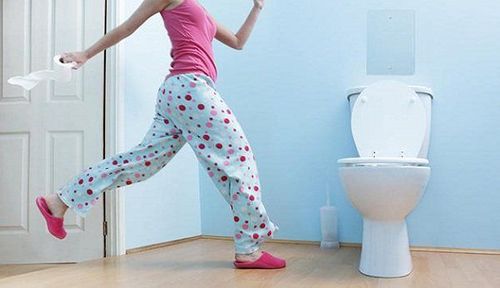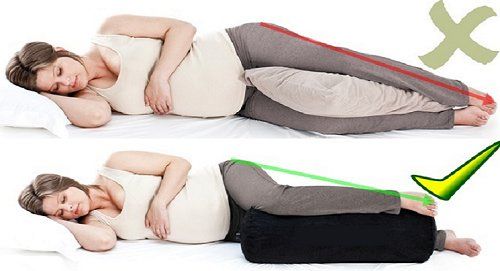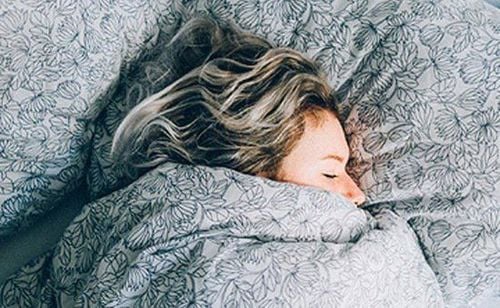This is an automatically translated article.
Sleep is extremely important for every human being after a long working day. However, getting a good night's sleep is not easy. The question many people ask is what to do before sleeping? The following article will introduce readers to things to do before going to bed to get a good night's sleep.
1. Choose a reasonable sleeping position
Sleeping position has a great influence on the quality of your sleep, many people have the notion that you can lie in any position as long as you feel comfortable. However, if you lie in the wrong position, it will lead to health effects after waking up.
Sleeping on your back is considered the best for alleviating insomnia, when the head, neck and spine are rested in a normal position. Although many people find this sleeping pattern uncomfortable, this is the best position doctors recommend for everyone.
The common sleeping pattern that many people often choose is lying on their side, this can make your breathing limited and wake up feeling joint pain, back pain. This pose is only recommended for pregnant women to improve blood circulation, but not recommended for normal people.
Lying on the stomach is the most harmful position for the body, when the spine is not kept in a resting position, it has a bad impact on the neck and back. On the other hand, the weight of the body on the joints and muscles makes you feel numb in the limbs.
2. Put electronic devices out of reach before going to bed
Electronic devices such as mobile phones or computers emit blue light that affects your sleep. They will raise your body temperature and increase the secretion of the hormone cortisol, which makes you feel awake. Therefore, 30 minutes before going to bed, do not use electronic devices to help the body fall asleep more easily.
3. Go to the bathroom before going to bed
Before going to bed, you should go to the toilet to empty your bladder to feel more comfortable, avoid waking up in the middle of the night and disrupting sleep because of the need to urinate. On the other hand, do not consume too much water before going to bed.

Đi vệ sinh trước khi đi ngủ giúp bạn có giấc ngủ ngon hơn
4. Do some simple exercises before sleeping
Gentle exercise : Performing gentle exercises about 15 minutes before bed will help you feel more relaxed and sleep better. Meditation: Meditation is a known method of reducing stress, helping the mind to rest before falling asleep. Think about the good: Try to picture in your head the good things that you wish for such as your dreams, happy memories with friends and relatives.
5. Control your diet
If you eat and drink in an uncontrolled way at dinner, it is also one of the causes of bloating and not sleeping well. Drinks containing alcohol or caffeine should not be consumed for 4 hours before bedtime to avoid sleep disturbances.
6. Use foods that support sleep
One of the causes of insomnia is magnesium deficiency in the body. You should add foods that are rich in magnesium such as spinach, avocados, and seeds to relax the nervous system and muscles, helping to have a better sleep. In addition, magnesium also improves cramps that keep many people awake at night.
Green beans contain many amino acids and tryptophan also plays an important role in maintaining a good night's sleep.

Bạn có thể bổ sung thực phẩm tốt cho giấc ngủ trước khi đi ngủ
7. Adjust the appropriate sleeping space
The bedroom environment is also a determining factor in whether you can sleep well or not. Imagine if you lie on an old mattress of poor quality, you will not be able to sleep well with a soft mattress. Some studies have proven that a mattress should not be used for more than 7 years, it will not have a good support for your sleeping position.
In addition, you should adjust the bedroom temperature between 26 and 28 degrees Celsius. Need to ensure good air circulation and should not be too bright when sleeping.
Above are the things to do before going to bed to answer the question "What to do before going to bed" of many people. If you suffer from insomnia or have trouble sleeping for a long time, you should see a specialist for examination and appropriate treatment.
Reference sources: wedmd.com, livescience.com













